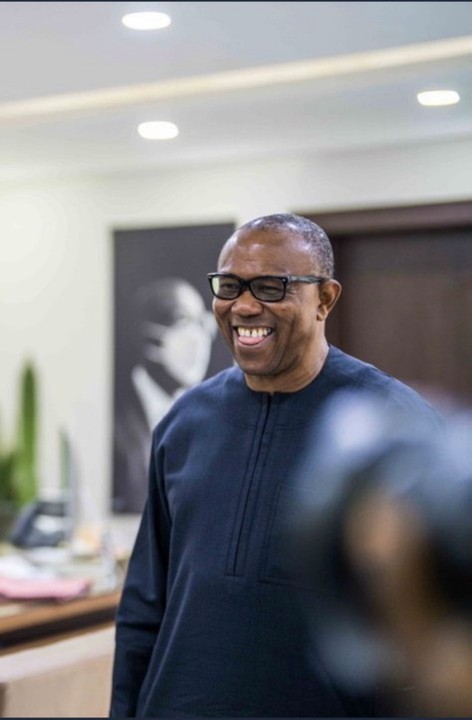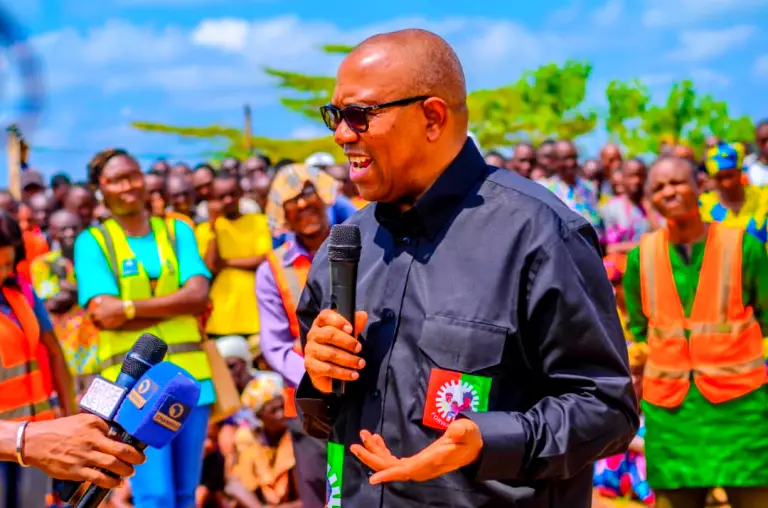Africa
The Price of Difference, by Ike Willie-Nwobu

As the 2023 general elections approached, painting the atmosphere with the kind colors that only politics can conjure in Nigeria, the People’s Democratic Party (PDP) made a catastrophic error. In May 2022, Peter Obi who was the party’s vice presidential candidate in the 2019 general elections was allowed to leave.
The former Anambra State governor who perceived that his ambition to be president was not realistic within a party generally lacking direction since it unexpectedly lost the 2015 election left the party citing the requests of his supporters.
The PDP’s cataclysmic loss soon proved a crucial gain for the Labour Party (LP) which welcomed Obi with open arms, receiving in the process the biggest boost since formation, and one likely to be its biggest ever.

Suddenly, the ruling All Progressives Congress (APC) which had dismissed the PDP as a nonstarter was quaking in its boots and for good reason.
Obi, charismatic, courageous and possessing a character and candor alien to Nigerian politicians, was making the right noises and luring to his camp many young Nigerians with his siren songs of a better future.
Peter Obi may have come third in the elections, but Nigerians had seen enough to know that unlike many of the plunderers who have led them to peril, Obi seemed to be the real deal.
Since he lost the election and lost at the Supreme Court, Obi has become the opposition figure that the APC and PDP could not produce in a combined 25 years as opposition parties in Nigeria.
Obi has remained measured and meticulous in his approach and public interventions even as Nigeria cascades dangerously into chaos at the hands of an administration that appears all at sea a mere eighteen months into office.
Since he surged into the public eye, driving Anambra State into an era of unprecedented development and forcing the Supreme Court to render a couple of groundbreaking judgments, a major part of Obi’s public appeal has lain in the fact that he hardly reluctant to put his money where his mouth is.
In the last few months, he has generously donated millions of Naira to institutions and groups invested in development in Nigeria in a bid to encourage them to continue pursuing the causes they are dedicated to.
Now, in a country where hypocrisy and hubris are the haute couture of politicians, there are many who would dismiss Obi’s philanthropy as pickaxes being sharpened in preparation for the 2027 elections. But the man’s record would dispel such lazy insinuations.

The man who has a reputation for being frugal does not hold back when the cause is right. He has always supported causes and groups that are dear to his heart across Nigeria’s many divides. The authenticity of his interventions have always been accentuated by the fact that he has always intervened in a transparent and sustainable manner.
It is this disposition which is disturbing in its different approach in Nigeria that may yet haunt Obi in 2027 if he decides to run again for Nigeria’s highest political office.
Elections in Nigeria are unfortunately oiled by the lubricant of filthy lucre. Party chieftains, delegates, and stalwarts all bank on being appeased with outrageous sums of money to give their support. Voters and even INEC officers are not immune to the fever which grips the electoral landscape every four years. Peter Obi’s refusal to fuel this fever may be his undoing.
Giving money that should be used to bribe his way to the presidency in 2027 to charity is clearly a recipe for disaster for his electoral hopes in a country hurtling towards disaster with frightening ferocity.
Obi may yet pay the price for being different in a country where uniformity has become a kind of atrocity, but the steeper price will certainly be reserved for a country that has so far failed to be distinguished itself from the potpourri of West African countries traumatized by the aftereffects of colonialism, military incursions into government, bad governance and corruption.
The clock ticks still.
Ike Willie-Nwobu,
Ikewilly9@gmail.com

























